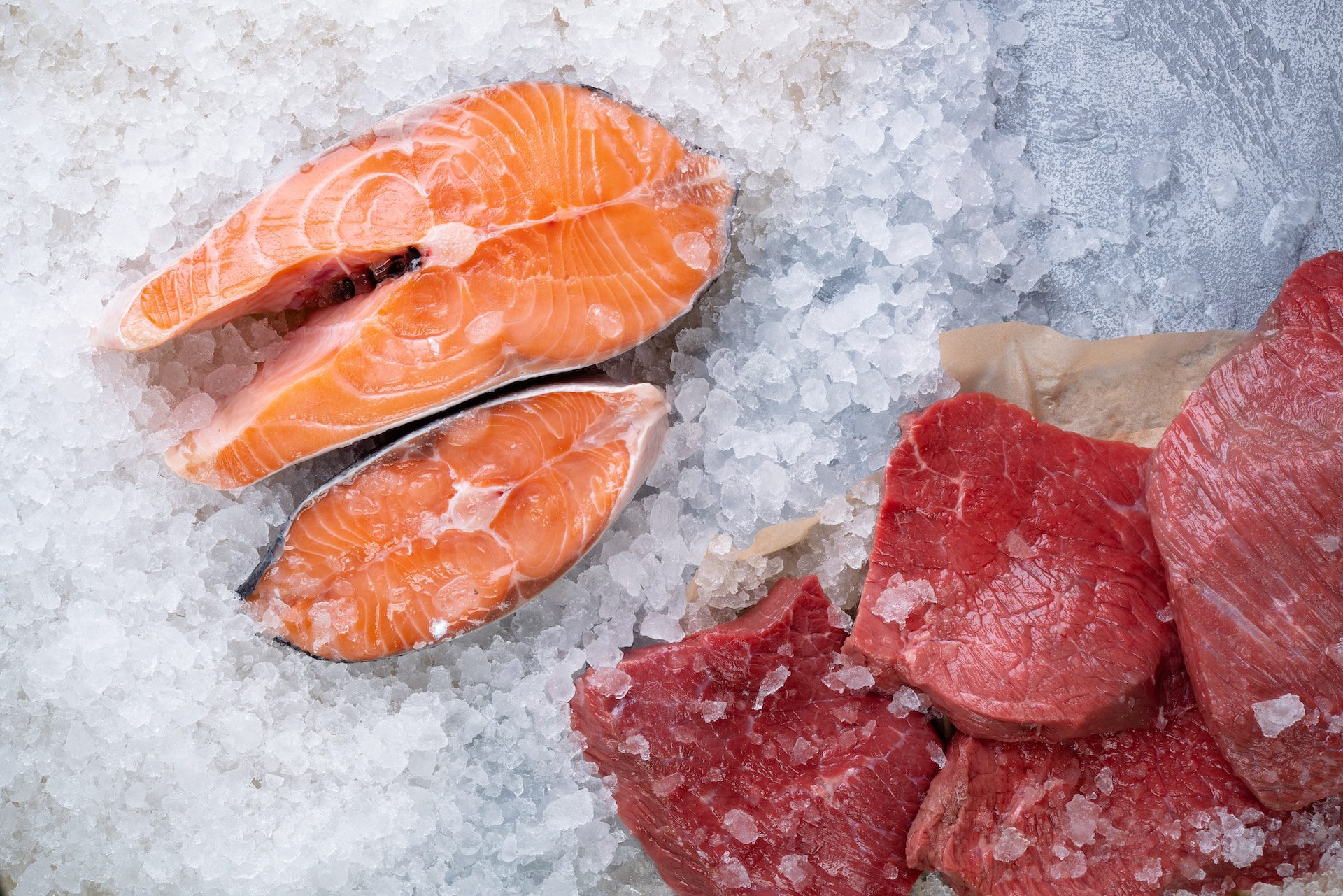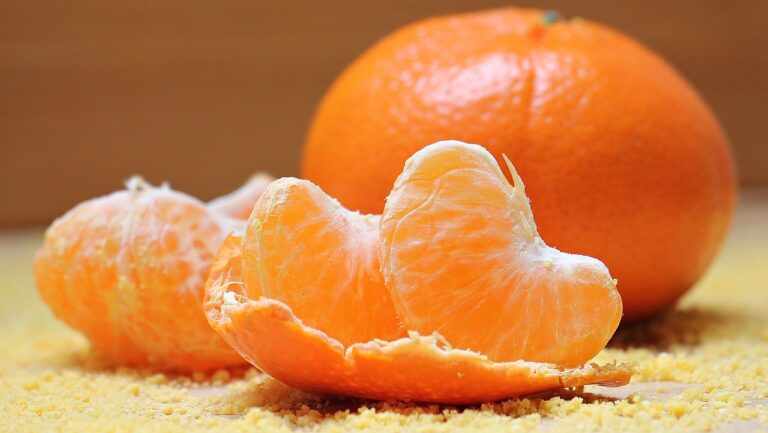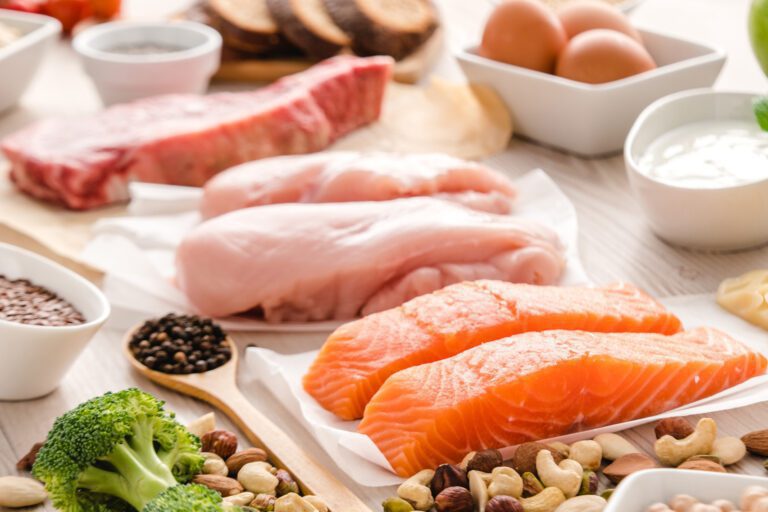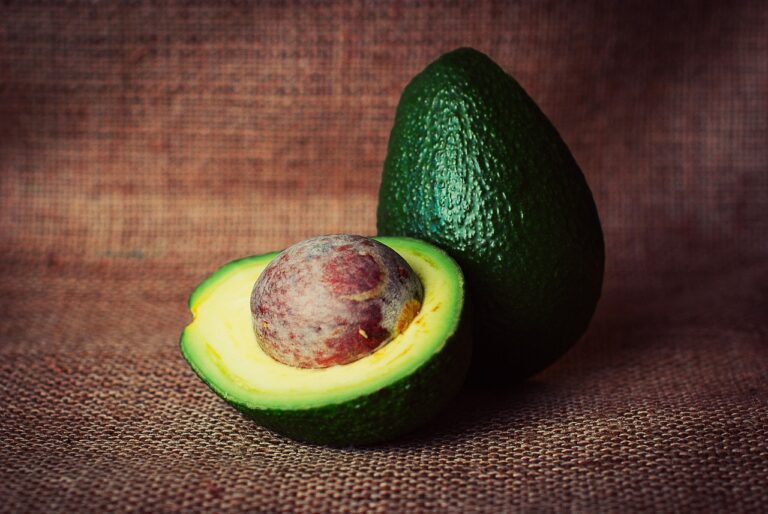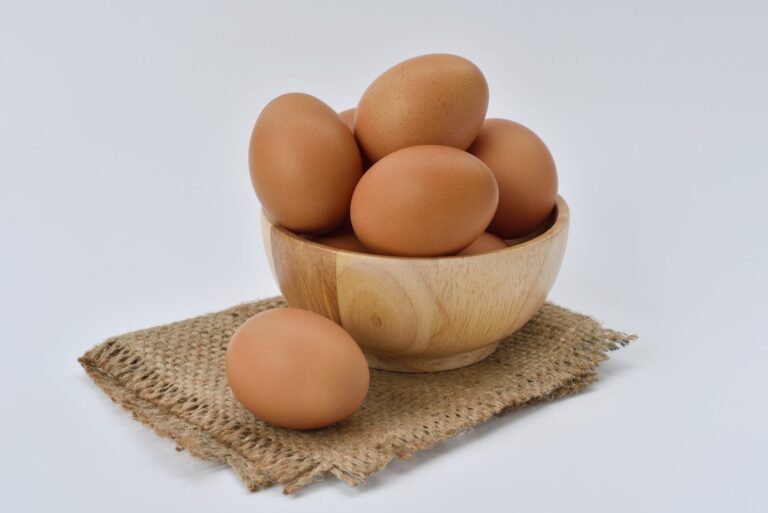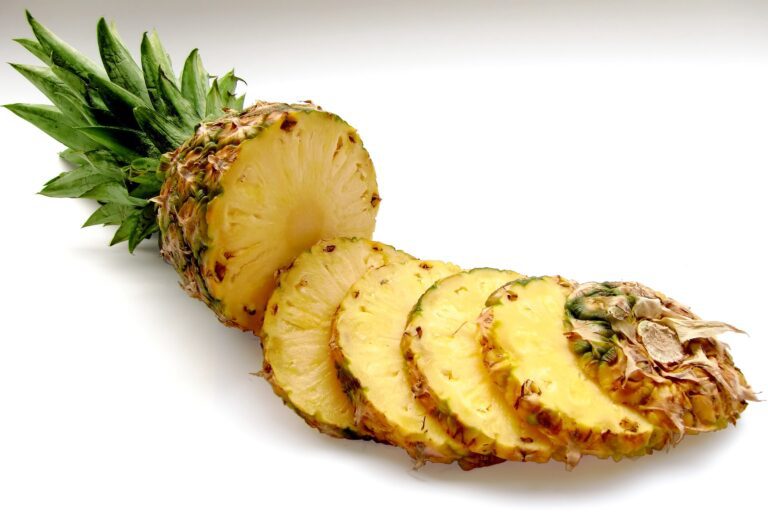Can Shih Tzus Eat Salmon: Unlocking the Benefits
Living the good life isn’t exclusive to humans alone: our beloved Shih Tzus are equally entitled to a rich, balanced diet for robust health. But as an owner, you may wonder if It’s a legitimate concern, given how salmon is widely celebrated for its fantastic health benefits in the human world.
Yet, should we extrapolate these benefits to our four-footed companions? How can we integrate salmon into their feeding regime without inciting problems? This article will doggedly sniff out the truths about incorporating salmon into your Shih Tzu’s diet.
We’ll delve into the benefits, debunk common misconceptions, and guide you towards serving your fur friend the best seafood dish they’ve ever had! Unleash your curiosity, and let’s unlock this topic together.
Can Shih Tzus Eat Salmon?
The short answer is yes, Shih Tzus can eat salmon. However, the details are slightly more complex. Like other dog breeds, Shih Tzus can benefit from the nutrients found in salmon. This includes omega-3 fatty acids that support skin and coat health— a crucial aspect of this breed known for its luxurious fur. The protein content helps maintain muscle mass, while the vitamins and minerals support overall health.
However, serving salmon to your Shih Tzu is more complex than tossing a raw slab into their bowl. Raw fish, including salmon, can carry parasites harmful to dogs. Therefore, any salmon served to Shih Tzus (or any dog breed) should be thoroughly cooked without any seasoning. This kills potential parasites and makes the fish easier to digest.
The frequency of serving salmon should also be considered. While it’s a healthy addition, it should not dominate your Shih Tzu diet. Incorporating salmon once or twice a week into their meals should be sufficient to reap the benefits without overdoing it.
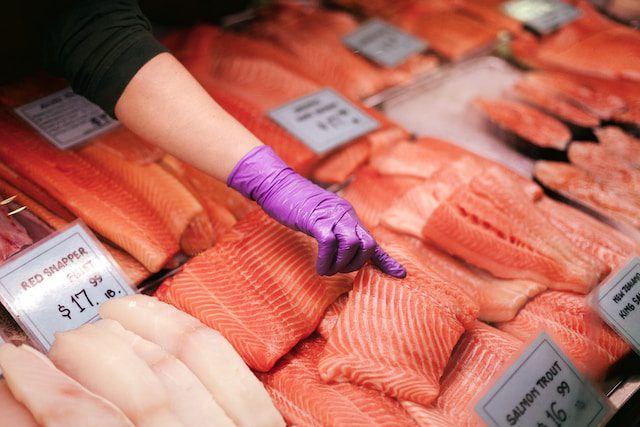
The Nutritional Value of Salmon
Salmon is well-known for its nutritional prowess in the human diet. This fatty fish is a powerhouse of essential nutrients contributing to overall health and well-being. Rich in high-quality protein, salmon promotes muscle growth and bone health and aids in body repair. Each serving of this pink-hued fish is loaded with omega-3 fatty acids known for their heart health benefits and anti-inflammatory properties. Salmon is an excellent source of vitamins and minerals, including B vitamins, vitamin D, selenium, and iodine.
But what does this mean for our furry friends, the dogs? The nutritional profile of salmon for dogs is similar to that of humans to humans; dogs need a well-rounded diet to maintain good health. They require a proper blend of proteins, carbohydrates, fats, vitamins, and minerals. Salmon, with its rich nutritional content, fits perfectly into this equation. It provides dogs with the necessary protein for strong muscles, omega-3 fatty acids for a shiny coat, and essential vitamins and minerals for overall health.
However, the key is moderation and proper preparation. While salmon is nutritious, it should be included in a balanced diet and not replace other essential dog food ingredients. Preparing salmon for dogs also requires certain precautions to avoid potential health risks.
The Benefits of Salmon for Shih Tzus
Salmon offers several health benefits for Shih Tzus. The omega-3 fatty acids present in salmon are excellent for maintaining a shiny, healthy coat. These fatty acids also have anti-inflammatory properties that help Shih Tzus with allergies or joint issues. Additionally, the high-quality protein in salmon aids muscle health, an essential aspect of this active breed.
Salmon’s vitamin and mineral content also play a crucial role in Shih Tzu’s health. For instance, the B vitamins in salmon contribute to a healthy metabolism and energy production, while vitamin D supports bone health. Other minerals like selenium and iodine are essential for properly functioning the thyroid gland and immune system.
Another indirect benefit of including salmon in your Shih Tzu’s diet is its appeal. Salmon has a strong, enticing aroma and taste that many dogs find irresistible. This can be particularly beneficial for picky eaters, encouraging them to eat their meals and thus get the nutrition they need.
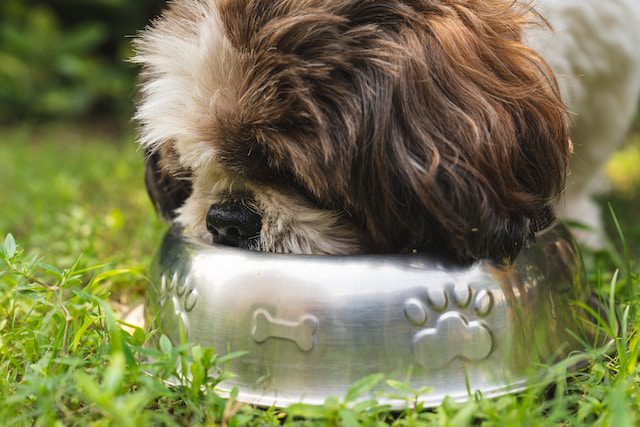
Potential Risks of Feeding Salmon to Shih Tzus
While salmon is generally safe and healthy for Shih Tzus, it has risks. The most significant concern with feeding salmon to dogs is the potential presence of parasites. Raw or undercooked salmon can carry a parasite known as Neorickettsia helminthoeca, which causes salmon poisoning disease, a condition that can be fatal if not treated promptly. Therefore, cooking salmon thoroughly before feeding it to your Shih Tzu is crucial.
Overfeeding salmon can also lead to issues. Despite its health benefits, salmon is high in fat. While the fats in salmon are healthy, too much can lead to weight gain and obesity. In addition, excessive intake of salmon can lead to an imbalance in your Shih Tzu’s diet, as they need a variety of foods to get all the nutrients they need.
Lastly, while rare, some dogs may be allergic to salmon. If it’s your Shih Tzu’s first time eating salmon, monitor them closely for any signs of an allergic reaction, such as itching, swelling, or difficulty breathing. Stop feeding salmon immediately and consult your vet if you notice these symptoms.
How to Safely Incorporate Salmon into Your Shih Tzu’s Diet
If you’re considering adding salmon to your Shih Tzu’s diet, it’s essential to do so safely and gradually. Start by introducing small amounts of cooked, unseasoned salmon into their regular food. This allows you to monitor your dog for adverse reactions and helps them acclimate to the new food.
Always ensure the salmon is thoroughly cooked. This eliminates potential parasites and makes the salmon easier to digest. Avoid adding any seasoning, as many spices and additives can harm dogs. Additionally, remove all bones, as they pose a choking hazard and can cause internal damage if swallowed.
Once you’ve established that your Shih Tzu tolerates salmon well, you can gradually increase the portion size. However, remember to keep it balanced. Salmon should complement your Shih Tzu’s diet, not dominate it.

Tips for Introducing Salmon to Your Shih Tzu
Introducing a new food to your Shih Tzu’s diet should be done carefully and gradually. Start with a small amount of salmon mixed with their regular food. This allows your Shih Tzu to get used to the new taste and texture while also letting you monitor for any potential allergic reactions.
It’s best to serve the salmon cooked and unseasoned. Many seasonings contain ingredients that can harm dogs, such as onions, garlic, and certain spices. The cooking process should involve boiling or baking the fish without adding fats or oils.
Remove all the bones from the salmon before serving it to your Shih Tzu. Fish bones can be a choking hazard and, if swallowed, can cause damage to your dog’s digestive tract. It’s also a good idea to break the salmon into small, manageable pieces to make it easier for your Shih Tzu to eat.
Other Beneficial Foods for Shih Tzus
While salmon is an excellent addition to your Shih Tzu diet, it’s essential to provide a variety of foods to ensure they get all the nutrients they need. Other beneficial foods for Shih Tzus include lean meats like chicken and turkey, healthy starches like sweet potatoes and brown rice, and various vegetables and fruits.
Lean meats provide the high-quality protein your Shih Tzu needs for muscle health. They’re also generally lower in fat than other meats, helping to prevent weight gain. Sweet potatoes and brown rice offer healthy, digestible carbohydrates that provide energy and support digestive health.
Vitamins, minerals, and dietary fiber abound in fruits and vegetables, making them excellent sources of these essential nutrients. They can be served raw, cooked, or frozen as a refreshing treat.
What to Avoid in a Shih Tzu’s Diet
Just as some foods benefit your Shih Tzu’s health, some should be avoided. These include anything high in sugar or salt, caffeine, chocolate, alcohol, grapes and raisins, onions and garlic, and certain artificial sweeteners like xylitol.
These foods can cause various health issues in dogs, from digestive upset to severe conditions like pancreatitis or kidney failure. If you need clarification on a particular food, it’s always best to consult your vet before feeding it to your Shih Tzu.

Consultation with a Vet: When and Why?
Any changes to your Shih Tzu’s diet should be discussed with your vet. They can provide valuable guidance on what foods are safe and beneficial for your particular dog, considering factors like age, weight, activity level, and overall health. A vet can also help you identify potential food allergies or sensitivities and advise on portion sizes and feeding schedules.
Regular vet check-ups are crucial for monitoring your Shih Tzu’s health and catching potential health issues early. If you notice any changes in your Shih Tzu’s eating habits, behavior, or physical condition, it’s essential to consult your vet as soon as possible.
In conclusion, salmon can be a healthy and beneficial addition to your Shih Tzu’s diet, provided it’s prepared correctly and served in moderation. With a balanced diet, regular exercise, and regular vet check-ups, your Shih Tzu can live a long, healthy, and happy life.
Final Thoughts: Can Shih Tzu’s Safely Enjoy Salmon in Their Diet?
Balancing your Shih Tzu’s diet is all about variety and moderation. While salmon is a great addition, it should be included as part of a balanced diet that includes a variety of nutritious foods. A balanced diet ensures your Shih Tzu gets all the nutrients they need for optimal health.
Introducing new foods gradually and monitoring your Shih Tzu for adverse reactions is vital. Always serve food in appropriate portion sizes to prevent overeating and weight gain. And remember, while providing a variety of foods is essential, consistency is also important. Sudden changes in diet can cause digestive upset, so try to keep your Shih Tzu’s diet relatively stable.

